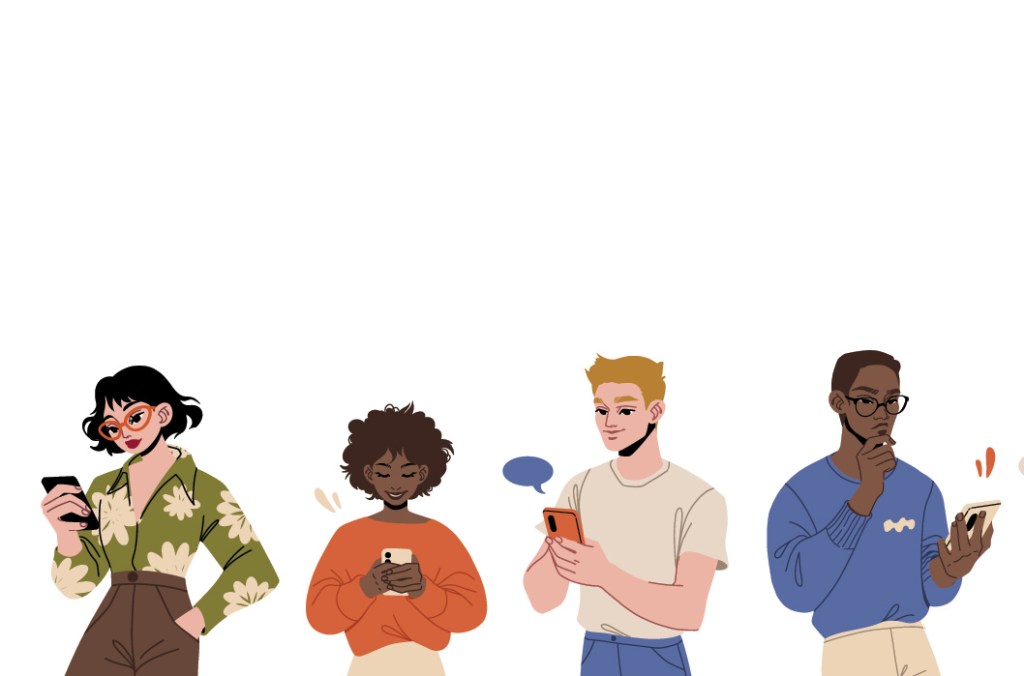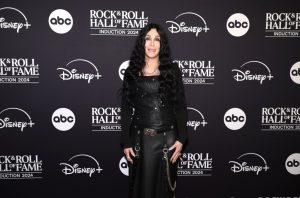Late last year, The Cut’s Cat Zhang ran an explainer on the word “khia” — a phrase that exploded in popularity online as longtime left-of-center artists (Chappell Roan, Tinashe, Charli XCX, etc.) had major mainstream moments after years of build-up and fan anticipation. As host of music podcast Pop Pantheon DJ Louie XIV relays in Zhang’s piece, “A ‘khia’ is a pop girl who people talk about, but who no one seems to care about culturally.” This definition works: It specifies the group of performers most likely to be hounded with the term (women in popular music), and its focus on cultural conversation nods to “khia” being a status that an artist can shift in and out of.
Out of “khia” spawned the “khia asylum,” a figurative purgatory for pop girls who are lighting up neither the charts nor social media timelines. Their albums get greeted with limited fanfare and only their most dedicated stans seem to care about anything they’re doing. But artists aren’t locked in the “khia asylum” forever. With the right single or era, an artist can escape the khia asylum they’re supposedly stuck in, like Charli (Brat) and Tinashe (“Nasty”) did last year. Nonetheless, an underperforming album or run of singles can render even seemingly infallible artists to the khia asylum – like, say, post-Radical Optimism Dua Lipa.
Zhang’s explainer is a great snapshot of the zaniness of online communities built on the constant dissection of pop culture, but it unfortunately belies the racist roots of how terms like “khia” come to be, and who and what they’re now most used to describe. “Khia” was first levied as an insult online back in 2014; Nicki Minaj stan accounts sneered at a fan’s overwhelmed reaction to meeting the real-life Khia herself. In the years that followed, the tweet became more of a meme than the individual term “khia,” but that started to change last year – especially as debates over the merits of different kinds of hip-hop dominated mainstream discourse.
“Khia” isn’t just a random word, though — it’s the first given name of Billboard-charting rapper Khia, most famous for her 2002 Billboard Hot 100-charting cult classic “My Neck, My Back” (No. 42) and her 2006 “So Excited” collaboration with Janet Jackson (No. 90). According to Luminate, “My Neck, My Back” has earned over 217.9 million official on-demand U.S. streams, while its parent album, the RIAA Gold-certified Thug Misses, has shifted over 618,000 U.S. album sales and reached No. 33 on the Billboard 200. But the numbers are the least interesting thing about Khia and “My Neck, My Back.” Her infectious flow and effusive lyrical ode to cunnilingus and anilingus are key building blocks for the p—y rap subgenre; she and her music have served as an enduring reference point for some of the biggest female rappers of this current class.
In 2017, two-time Grammy-nominated rapper Saweetie freestyled over “My Neck” for her debut single, “Icy Girl,” which eventually reached No. 16 on Rhythmic Airplay. The same year, Miami rap duo City Girls called on Khia’s classic for their own debut single, “F–k Dat N—a,” which later served as the fifth single from Quality Control’s Control the Streets, Volume 1 compilation. During this year’s Grammy telecast (Feb. 2), Dove aired a commercial soundtracked by a remake of “My Neck” courtesy of Grammy-nominated rapper Chika. In the past decade, the song’s influence has even stretched outside of hip-hop, with artists like Miley Cyrus and Elle King delivering covers of the X-rated anthem. Many artists dream of putting out just one song that achieves a fraction of the commercial success and cultural resonance of “My Neck, My Back” — and yet the name of the artist behind that very song has now become synonymous with being an act of little to no viability or significance. (A representative for Khia did not respond to Billboard‘s request for comment at the time of publication.)
That’s not right. Knowing how sinister this industry can be to Black female artists, it’s wholly disrespectful to condense Khia’s career and impact into a euphemism for flopping. Not only is she an artist who’s greatly contributed to her genre and left an undeniable legacy, but she’s also a person. And that’s her real birth name, by the way. To strip her name from her and contort it into a term that is most often used to degrade artists who look like her is simply dehumanizing. The fact that so many users weren’t even hip to the correct pronunciation of her name says it all.
“Khia” isn’t the only problematic term that’s recently gained popularity online. Some of these phrases have been percolating for years, but they’ve started popping up more frequently in the wake of Lamar’s triumph over Drake last year and Doechii’s Alligator Bites Never Heal-fueled mainstream rise. Throughout their careers, both Lamar and Doechii – former and current TDE affiliates, respectively – have been vocal about their deep love and respect for the roots of hip-hop and the importance of protecting its sanctity. Inside and outside of their music, they, for many, exemplify the essence of hip-hop for later generations.
In “Man at the Garden” (No. 9), a Hot 100 top 10 hit from his late 2024 surprise album GNX, Lamar soliloquizes, “How annoying, does it angers me to know the lames can speak/ On the origins of the game I breathe? That’s insane to me.” Last year, Doechii – after smartly introducing her mixtape with a single that uses boom bap to call out the hypocrisy of male rap gatekeepers and fans – wrote on X: “Don’t let these people brainwash you into disconnecting from the soul of hip hop by convincing you it isn’t cool or it’s ‘too deep.’” Nonetheless, in recent months, their mutual conscientiousness – and use of explicitly Black genres like jazz and boom bap — has been perceived as being condescending, preachy and just plain unfun, giving way to the continued use of insulting terms meant to specifically disparage their devotion to hip-hop traditions.
One of the more unfortunate things about discussing anything online this deep in the Internet Age is that everything gets flattened. And that really sucks for our more dynamic artists. Through the beef, Lamar became generally representative of traditional, lyricism-centered hip-hop, while Drake became the poster child for more fun, danceable, easily digestible tunes. Of course, the full scope of both of their catalogs is far more nuanced, but both rappers played into those perceptions during their beef.
“Euphoria” finds Lamar promising Drake, “Keep makin’ me dance, wavin’ my hand, and it won’t be no threat,” and in “Family Matters,” Drizzy describes K.Dot’s style as, “Always rappin’ like you ’bout to get the slaves freed.” That “Family Matters” line, in part, gave way to the increased use of another gross term – this time, one used to describe music that embodies the foundational spirit of hip-hop.
“I can’t get behind that slave music Kendrick make,” one user wrote on X three days after GNX – widely considered to be the Compton rapper’s least conceptual LP – dropped. When Lamar released “Watch the Party Die,” his first post-“Not Like Us” song, on Instagram, another user facetiously posted, “What was Kendrick talking about in that diss ion feel like listening to slave music right now…” Because Kendrick explored the cross-generational and cross-cultural impact of slavery on records like 2015’s To Pimp a Butterfly, suddenly all of his music was “slave music.” Butterfly also houses the Grammy-winning “Alright,” one of the biggest protest anthems of the Black Lives Matter era; in one X post that’s been viewed over 20.5 million times a user dismissed Kendrick’s entirely catalog on the basis of that song, writing, “Drake held us down for 15 summers and [y’all] turned on him for a guy that make protest music.”
After Doechii went viral for a self-choreographed Late Show performance of “Denial Is a River” and “Boiled Peanuts,” another user wrote, “Making [that] Harriet Tubman music is the cheat code to getting respected in rap.” That post – which racked up over 8.4 million views — caused such a fracas that even Ebro Darden, host of Apple Music’s Rap Life podcast, commented: “When you get into uplifting Black people… don’t we continue to be reminded that [the mainstream] don’t want that from Black people – specifically in hip-hop? And then [people are] calling it ‘Harriet Tubman rap,’ like, what? [That sector of the world] exists but allowing that to shape our conversations around what we as hip-hop deem to be spectacular… we’re playing ourselves.”
There are plenty of other terms like these entering too-common usage: “plantation tunes,” “Negro spiritual music,” “Mufasa music,” “twerk slay mama music,” etc. At the top of the new year, an X fan account wrote, “Watching Doechii become a shea butter artist is actually sad”; here, the term “shea butter” is a dog whistle for Black Americans in online circles. Some of these terms spawned from intracommunal discussions that spilled over into general online conversation, and others are likely to have been pushed by bot accounts – often specifically targeting dark-skinned Black artists. None of them are helpful or interesting descriptors for music, and all of them are disrespectful to Black history.
It is absolutely disgusting to invoke Harriet Tubman’s name or anything related to the Transatlantic slave trade as a way to disregard and denigrate Black artists and their work. One of the gravest sins in human history, the centuries of death, rape, cannibalism, subjugation, exploitation and discrimination of Black people by way of the slave trade and its heinous offspring are horrors that we will never completely understand. Those ancestors are to be venerated and eternally respected, not used as shorthand for the disparagement of their descendants’ art, which often explicitly exalts their history.
The first couplet of Alligator Bites is “Let’s start the story backwards/ I’m dead, she’s dead, just another Black Lives Mattered”; by track three, Doechii’s naming songs after boiled peanuts, a popular snack in the Southern U.S. brought to the region via enslaved Black people from West Africa. People often point to Butterfly as Lamar’s opus in terms of sociopolitical commentary, but we can also just give GNX’s “Reincarnated” a spin: Over a sample of 2Pac’s “Made N—az,” Lamar connects the lives and stories of (presumably) blues singer-songwriter and guitarist John Lee Hooker, a Billie Holiday-esque Chitlin Circuit character, Lucifer and himself. History and legacy drive key aspects of both Lamar and Doechii’s recent releases; it’s particularly sinister and sickening to flip those artistic choices as ploys for approval from white critics and awards bodies.
And let’s say either artist really was making music informed by work songs and Negro spirituals. What’s wrong with that? Why is that a bad thing — especially when those songs provided the foundation for the evolution of American music in the centuries that followed? All these terms do is reduce Black experiences into inaccurate archetypes and further devalue the Black roots of countless genres. And once it became fair game to make light of slavery, it became easier to introduce more of these bits of coded language into contemporary discourse.
A Pitchfork review of In Pieces, Chlöe’s 2023 debut solo album, described “Have Mercy,” her debut solo single, as “a song from the Empire soundtrack… something Lucious Lyon would come up with.” From that point, “Empire music” became a popular online term to describe Chlöe’s sound – which largely comprises of the same uptempo R&B-pop tracks people endlessly moan and groan for across social media. If “Empire music” was code for dismissing uptempo contemporary R&B from Black female artists, “lash tech music” was code for dismissing its downtempo counterpart. People have used the term to describe music from Summer Walker, Jhené Aiko, Chlöe, and even Skilla Baby’s songs dedicated to his female fanbase.
Granted, both of these terms primarily originated in Black circles. A Black writer reviewed In Pieces for Pitchfork, and a lot of Black lash techs really did listen to a lot of Summer Walker and the like. The issue is that there are no real community boundaries in online discourse – particularly on platforms like X (formerly Twitter) – so non-Black users then adopt these phrases (often hiding behind profile pictures of Black celebrities or fictional characters) with an incomplete understanding of the irony and humor Black people use amongst themselves. “Empire music” and “lash tech music” became outright pejoratives instead of unserious inside jokes.
The “Empire music” phenomenon is particularly interesting – because the show spawned legitimate Billboard hits. The first season’s soundtrack peaked atop the Billboard 200 and a handful of its songs landed on the Hot 100, including the Estelle-assisted “Conqueror” at No. 42. The soundtrack even finished at No. 9 on Billboard’s 2015 Year-End Top R&B/Hip-Hop Albums ranking. And while the music wasn’t necessarily paradigm-shifting and made for TV – which is arguably the real joke of the “Empire music” quip — it clearly connected with audiences. Once users unfamiliar with Empire’s cultural cachet got a hold of the term, the irony and humor were permanently replaced by disdain disproportionately geared toward Black women in R&B and pop. The term became an additional tool of limitation in an industry that goes out of its way to obstruct Black women’s potential.
In response to an X user’s New Year’s wish for “more uptempo R&B” in 2025, rising pop star Jae Stephens wrote “No one will do it [because] everyone’s quick to label it ‘empire/star music!’” It’s heartbreaking to read those words from a burgeoning Black pop star, especially when a white pop girl like Tate McRae can drop uptempo R&B-inflected pop bangers and be hailed as Top 40’s next messiah by the very same crowds that will write off Black pop girls with the aforementioned dog whistles.
Last year, we watched the CMAs completely ignore Cowboy Carter while celebrating F-1 Trillion, Post Malone’s country crossover album from the same year. We saw, at the highest level, how Black artists – and Black women, in particular – are denied the ability to move through genres as freely as their white peers. Chlöe, whose music traverses a range of genres, touched on this in a Nylon cover story last year as well. “Any music I do will easily and quickly be categorized as R&B because I’m a Black woman,” she said. “If someone who didn’t have my skin tone made the same music, it would be in the pop categories.” Why continue to use verbiage that not only disrespects their art, but also makes it harder for Black pop stars to break into and thrive in predominantly white top 40 spaces?
It was a wonderfully discombobulating experience reading this X post from Stephens. “Give a khia a chance,” she wrote to Charli XCX in a post quoting Pop Crave’s observation that “Hello Goodbye” is the only Brat song without a remix. That wasn’t the first or last time Stephens had used the term – and who can blame her? It’s a popular term that’ll help her visibility in the algorithm – but what does it say about the state of music, its business and accompanying discourse if we are at the point where a rising Black female pop star is using a term that bastardizes the given name of Black female rapper (even if ironically) in an attempt to gain more notoriety amongst pop listeners? It’s easy to disregard these terms and discussion of their respective merits as “chronically online,” but how we discuss music and artists on the Internet has a direct impact on how we discuss them in real life, which, to a degree, then influences which artists the industry chooses to support.
Above all, “khia,” “slave trade music” and the like are simply unintelligent ways to describe music. We deserve better and smarter conversation from ourselves – especially when we have so many Black and non-white mainstream artists putting out art that deserves genuine, thorough consideration and can’t be easily summarized or dismissed with insulting and derogatory terms like these. We have access to far too much music history to settle for grounding our experiences and responses to music in such thinly veiled racist coded language.







Comentarios